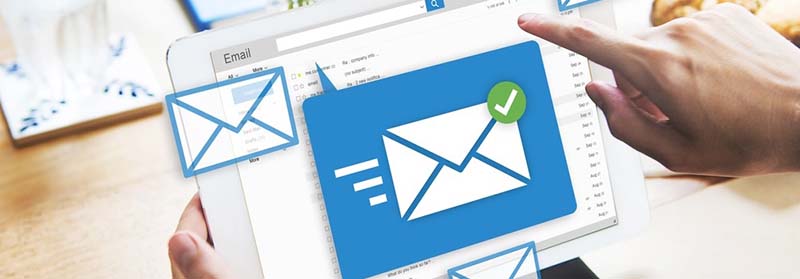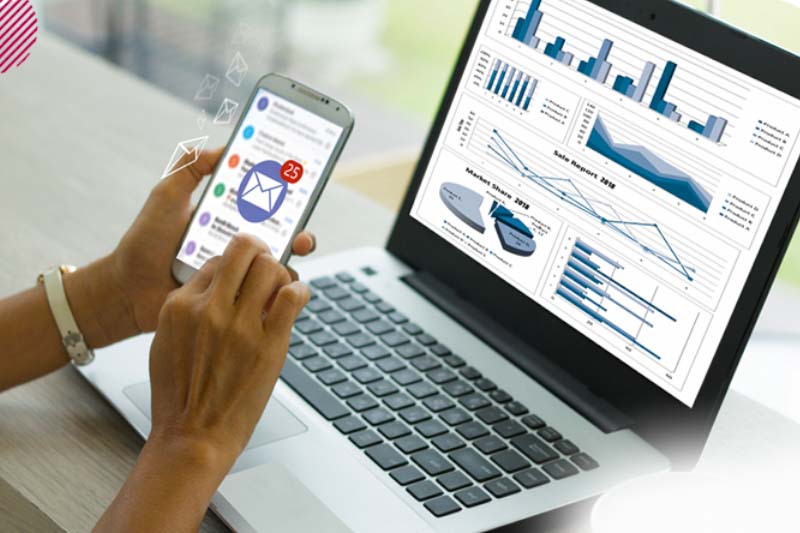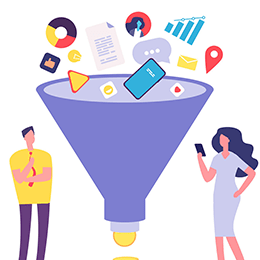Discover how to Unlock Target Account Selling with B2B Email Marketing
The Target Account Selling methodology can be challenging to implement since it takes time and needs people from sales to understand as much as possible about their prospects to provide them with individualized material and support throughout the purchase process.
1. Align Sales and Marketing
Target Account Selling isn't just a sales or marketing strategy; it's a holistic approach that requires collaboration from both. Your marketing strategy will fail if the marketing and sales teams aren't on the same page. The marketing, sales departments should work together to attain higher ROI. Ensure your marketing and sales team uses the same CRM tools. The technologies you employ should make it quick and straightforward for your marketing and sales teams to get their information. This ensures that all relevant contact data is saved in a central database and is available to those who require it.
Improve the internal alignment with these tips:
- To boost motivation, operate with the same goals
- By using shared dashboards and reports, everyone will be on the same page
- Open communication and personal interactions are more important than anything else for sales and marketing alignment
- Create strategic feedback processes
2. Make an Ideal Customer Profile (ICP)
The quality and quantity of accounts you target are critical to your sales performance. You must focus on the right companies. The Ideal Customer Profile (ICP) contains firmographic and demographic data that characterize your most valuable clients. With a well-defined ICP, you can identify critical accounts and create messaging to entice and convert them into buyers. To develop your ICP, you'll need to look at qualitative and quantitative data about your prospects, particularly the firms where they work and other similar connections.
3. Build Targeted Buyer Personas
Now that you know what types of accounts to target, you need to figure out how to communicate with the key prospects from those accounts. Buyer personas are fictionalized versions of your ICP based on anecdotal observations, existing customer data, and quantitative research. Marketers commonly use buyer personas to discover and engage with the best prospects, but they also play a significant role in Target Account Selling. Buyer personas may help you figure out who the decision-makers are at your target organization, the interactions between them, their purchasing habits, and more. Building a buyer persona is similar to creating an ICP; they are essential to your target account selling approach.
Reach out to the qualified Prospects
4. Design your B2B Marketing Tactics
You must target and connect with potential audiences who are an excellent fit for your product to achieve success in account-based selling. Apart from selecting accounts that fit your ICP, account coverage and account quality are two more important factors to consider during the account targeting process.
Account coverage: The quantity of target accounts you identify and how many key stakeholders you engage with from each account are considered account coverage. You'll close deals if you have strong engagement but a small number of accounts. On the other hand, you'll have difficulty converting target accounts into purchasers if you reach a large number of them but have low interaction. As a result, you'll want to aim for a large number of accounts and a high level of account engagement.
Account Quality: Evaluate accounts with your Ideal Customer Profile to determine account quality. Assign a score to each aspect of your ICP, from industry to revenue to personnel count. You'll be able to prioritize outreach and manage your time more effectively using this rating system.
5. Engage your Audience with a Targeted Strategy
Account-based selling focuses on highly focused, individualized sales outreach for the firm and each important prospect within an account. This information contains each client's business requirements, purchasing preferences, and role in the business. This strategy achieves the following goals:
- It introduces your products and services to each member of the purchasing committee
- It focuses on only the areas that each person is interested in
- It encourages discussion about your platform on all levels
So, no matter who's in charge of purchasing, they're already familiar with your product and have a personal stake in the version you're using. All because you were able to explain how it meets their specific needs.
6. Analyze your Marketing Campaigns
The emergence of data, which is powering marketing and sales intelligence technology, is credited with the development of Target Account Selling. Target Account Selling strategy's marketing and selling approach is based on data. You must prioritize the information in your sales contact database and spend time analyzing your selling performance.










